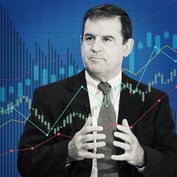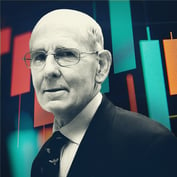When there is panic in the streets over investment angst, it’s because the people who are crazy upset are being emotional. When Warren Buffett, at the same time, observes the madness of the crowd, he becomes reflective. He uses a different part of the brain, or, more properly, a competing section of his brain wins the battle against becoming overexcited.
As investment professionals, we are paid to use our reflective brains. Would you go to a doctor, who, after diagnosing cancer, jumps up and down and begins excitedly running off at the mouth, saying, “Oh, my, oh my! You have cancer! What am I going to do? What will we do? This is bad.” You get the idea, right? We are supposed to be professionals.
Brains are funny things, aren’t they? Science is now proving that electrons fire like mad in your gray matter even when you do something simple like pick up a pencil. And it seems that our hemispheres and other top-knot parts are often at war with each other. Decisions we make (whether or not to actually pick up the aforementioned pencil or to sell 500 shares of IBM for a customer) are often the result of a win by one part of the brain and a loss by another. We are often unaware of the processes, and I suspect that Mr. Buffett and others have been able to train themselves to be supremely rational, which is just another name for the act of being reflective. (George Soros is also famous for using the reflective part of his brain, a skill that seems to bring him $1 billion here and there.)
As to my brain, such as it is, I am a big fan of Mr. Buffett and his investing skills, as readers of The Investment Edge are bound to know. However, I am about as excited by his tax plans as I get about movie actors telling me how to vote politically. Usually, actors are 100% emotional and 0% reflective, especially those who become political activists. (Such activism is often incredibly emotional.) So, maybe Mr. Buffett uses his emotional brain for suggesting national tax policy, which gives him a break from using his reflective brain for investing. Me? I would be happy if our elected officials did their jobs.
Have a fantastic voyage this week, and practice using your reflective brain skills — there’s enough volatility out there to make such talents essential investment professional equipment.
For more blogs from Richard Hoe, click here.








 September 20, 2011 at 08:00 PM
September 20, 2011 at 08:00 PM









